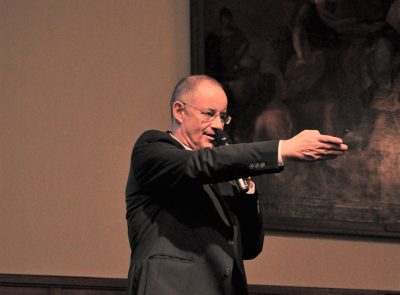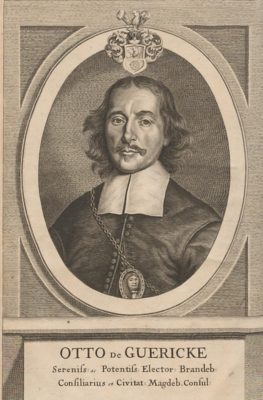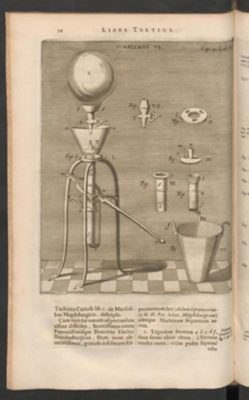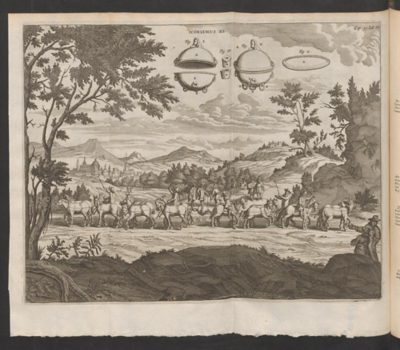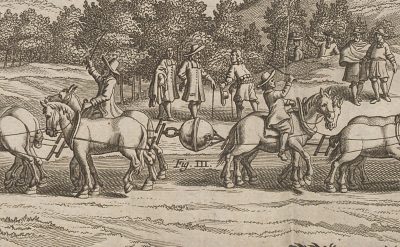Otto von Guericke: Experimenta Nova (ut vocantur) Magdeburgica De Vacuo Spatio (Amsterdam 1672).
published December 2020
The favourite book of Roland Gröbli
Continuing our popular series, Roland Gröbli, Corporate Secretary of Georg Fischer Ltd and Chairman of the Governing Board of the Iron Library Foundation, presents his favorite discovery to date in the library: the great work of the longtime mayor of Magdeburg and experimental researcher, Otto von Guericke. He is particularly enthused by an experiment presented by Otto von Guericke in 1654 before the Reichstag in Regensburg. Two teams of eight horses each could not separate two hemispheres, held together only by a vacuum.
